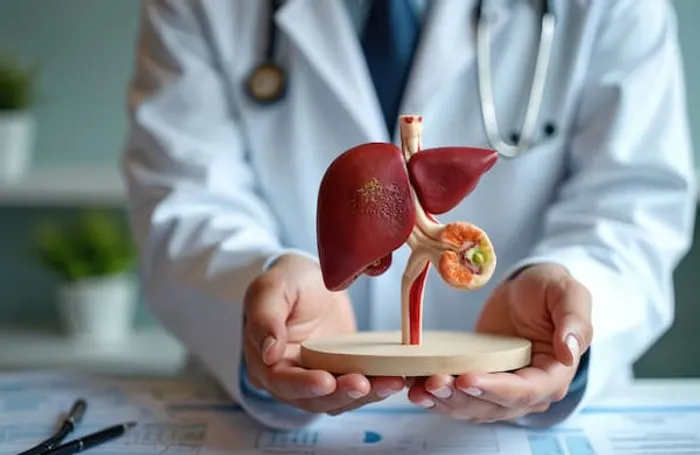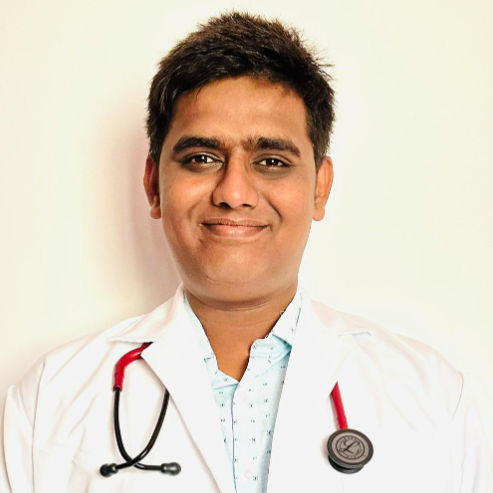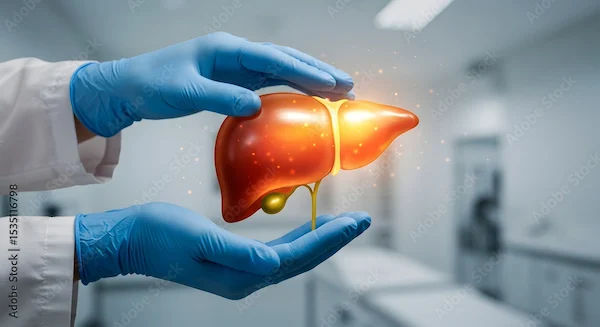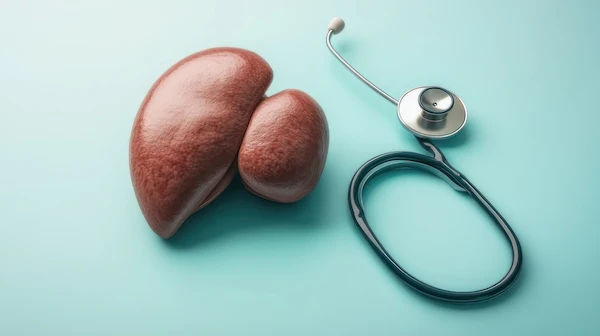When Is Liver Transplant Needed?
Learn when a liver transplant is necessary, what conditions can lead to it, and how to manage symptoms and liver health effectively.

Written by Dr. Dhankecha Mayank Dineshbhai
Reviewed by Dr. D Bhanu Prakash MBBS, AFIH, Advanced certificate in critical care medicine, Fellowship in critical care medicine
Last updated on 13th Jan, 2026

Introduction
The liver is one of the most vital organs in the body, responsible for filtering toxins, aiding digestion, storing energy, and producing essential proteins. When the liver becomes severely damaged and can no longer function properly, a liver transplant may be the only life-saving option.
If you or a loved one is facing liver disease, understanding when a transplant is necessary can help you make informed decisions about treatment. This article explains the key reasons for a liver transplant, symptoms to watch for, and how to manage liver health.
Consult Top Specialists for Personalised Liver Health Advice
What Conditions May Require a Liver Transplant?
A liver transplant is usually considered when chronic liver disease progresses to end-stage liver failure or when acute (sudden) liver failure occurs. Some common conditions that may lead to a transplant include:
1. Cirrhosis (Advanced Liver Scarring)
Cirrhosis occurs when long-term liver damage results in scar tissue that replaces healthy tissue, impairing function. Common causes include:
Chronic hepatitis B or C
Alcohol-related liver disease
Non-alcoholic steatohepatitis (NASH)
2. Liver Cancer (Hepatocellular Carcinoma)
If cancer is confined to the liver and hasn’t spread, a transplant may be an option. Early detection increases the chances of successful treatment.
3. Acute Liver Failure (Sudden Liver Damage)
Sudden liver failure can result from:
Drug toxicity (such as paracetamol overdose)
Severe hepatitis infections
Autoimmune liver diseases
If the liver does not recover with medical treatment, a transplant may be urgently needed.
4. Genetic & Metabolic Liver Diseases
Wilson’s disease, hemochromatosis (iron overload), or alpha-1 antitrypsin deficiency can damage the liver over time. A transplant may be needed if medications and lifestyle changes don’t control the condition.
5. Biliary Atresia (In Babies & Children)
This rare condition blocks the bile ducts and damages the liver. When other treatments do not work, a liver transplant may be necessary.
Signs That a Liver Transplant May Be Needed
If you experience any of these symptoms, consult a doctor immediately:
Yellowing of the skin and eyes (jaundice)
Severe fatigue and weakness
Swelling in the abdomen (ascites) or legs
Easy bruising or frequent bleeding
Confusion, memory loss, or difficulty concentrating
Persistent nausea and poor appetite
How Is a Liver Transplant Performed?
A liver transplant involves replacing a diseased liver with a healthy liver from a deceased or living donor. The surgery takes several hours, followed by a recovery period in the hospital.
Living Donor vs. Deceased Donor Transplant
There are two primary sources for liver transplants—living donors and deceased donors. Each type has its own advantages, eligibility criteria, and considerations.
Living donor transplant: A portion of a healthy liver is removed and transplanted. Both the donor’s and recipient’s livers regenerate over time.
Deceased donor transplant: The liver comes from a recently deceased donor.
Life After a Liver Transplant
Recovery takes time, and lifelong care is essential to prevent rejection and complications:
Take immunosuppressant medications as prescribed
Eat a balanced, low-sodium diet
Avoid alcohol and smoking
Get regular check-ups and blood tests to track liver function
How to Keep Your Liver Healthy
Preventing liver disease is always better than needing a transplant. Here are some tips:
Limit alcohol consumption.
Maintain a healthy weight to avoid fatty liver risk.
Get vaccinated for hepatitis A & B.
Avoid sharing needles & practice safe sex to prevent hepatitis.
Be cautious with medications—overuse of painkillers or supplements can harm the liver.
When to See a Doctor?
If you have chronic liver disease or symptoms like jaundice, swelling, or extreme fatigue, consult a hepatologist (liver specialist) immediately. Early intervention can slow liver damage and improve outcomes.
If you suspect liver problems, Apollo 24|7 offers expert consultations and diagnostic tests. You can book an appointment online and get personalised care from top liver specialists.
Final Thoughts
A liver transplant can be life-saving for individuals with advanced or sudden liver failure. Recognising symptoms early and seeking timely medical care is crucial for better outcomes. Both living and deceased donor options offer hope, depending on your condition and availability.
Consult Top Hepatologists
Consult Top Specialists for Personalised Liver Health Advice

Dr. E Prabhakar Sastry
General Physician/ Internal Medicine Specialist
40 Years • MD(Internal Medicine)
Manikonda Jagir
Apollo Clinic, Manikonda, Manikonda Jagir
(150+ Patients)

Dr. Akshatha Manjunath
General Surgeon
8 Years • MBBS, MS
Bangalore
Apollo Clinic Bellandur, Bangalore

Dr. Pukhraj Singh Jeji
Gastroenterology/gi Medicine Specialist
13 Years • MBBS, MD ( Internal Medicine ), DM ( Gastroenterology ), Consultant - Gastroenterology
Bhubaneswar
Apollo Hospitals Old Sainik School Road, Bhubaneswar

Dr. Sushith C
General Physician
2 Years • MBBS
Bengaluru
PRESTIGE SHANTHINIKETAN - SOCIETY CLINIC, Bengaluru

Dr. Pavan Kumar Y M
Gastroenterology/gi Medicine Specialist
5 Years • MBBS, MD Medicine, DM Gastroenterology
Bengaluru
Apollo Medical Center, Marathahalli, Bengaluru
Consult Top Hepatologists

Dr. E Prabhakar Sastry
General Physician/ Internal Medicine Specialist
40 Years • MD(Internal Medicine)
Manikonda Jagir
Apollo Clinic, Manikonda, Manikonda Jagir
(150+ Patients)

Dr. Akshatha Manjunath
General Surgeon
8 Years • MBBS, MS
Bangalore
Apollo Clinic Bellandur, Bangalore

Dr. Pukhraj Singh Jeji
Gastroenterology/gi Medicine Specialist
13 Years • MBBS, MD ( Internal Medicine ), DM ( Gastroenterology ), Consultant - Gastroenterology
Bhubaneswar
Apollo Hospitals Old Sainik School Road, Bhubaneswar

Dr. Sushith C
General Physician
2 Years • MBBS
Bengaluru
PRESTIGE SHANTHINIKETAN - SOCIETY CLINIC, Bengaluru

Dr. Pavan Kumar Y M
Gastroenterology/gi Medicine Specialist
5 Years • MBBS, MD Medicine, DM Gastroenterology
Bengaluru
Apollo Medical Center, Marathahalli, Bengaluru




